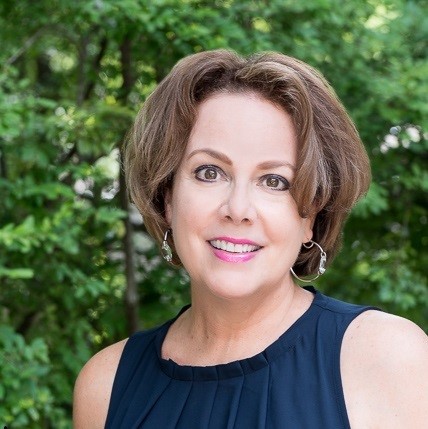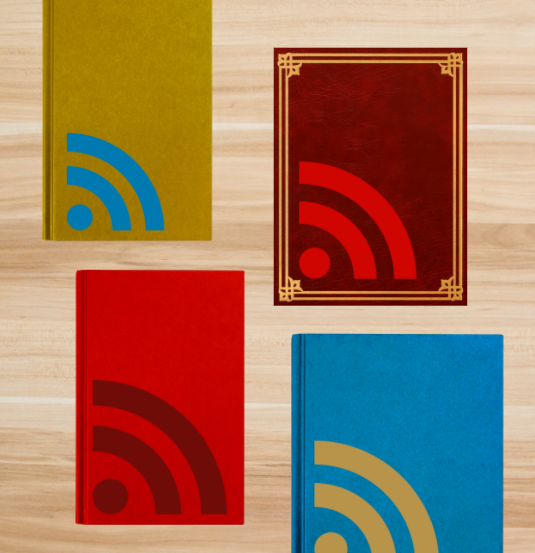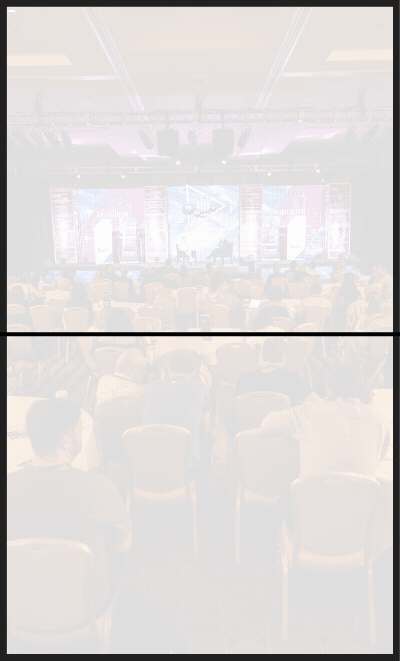

As VP of podcasting at Macmillan, Kathy Doyle runs the day-to-day of the Quick and Dirty Tips nonfiction podcast network and Macmillan Podcasts.
From business decisions and negotiating contracts, to working with her team to make sure things go out on schedule, Kathy’s love for everything podcasting runs deep.
She told me about the role of setting expectations with your team, what she loves most about her job, and why short podcasts — despite all the doubt — are more than just a viable, advertiser-friendly format.
What you’ll learn in this interview:
- A key metric that dives deeper than downloads
- The importance of communicating production expectations
- The myth of unsellable short-format podcasts
- How to make your podcast stand out from the crowd
- The importance of relationships in podcasting
Portions of this interview have been edited for clarity and content.

Doug
In terms of a book’s success, it's pretty easy to quantify with pre-orders and other sales numbers. But what metrics do you use to quantify success for your podcasts?
Kathy
We look at a variety of metrics. Whenever possible, we try to see whether an episode or a series or something we did to promote the work led to an increase in book sales, we’ll map it out based on appearances and things like that.
We also look at consumption rates. To me, those are really important, they're a good indicator as to how much of the content someone listens to. We certainly look at downloads, that is still for us the most important metric in terms of looking at and seeing how a show's trajectory is progressing. We want to see growth, we want to see those numbers increasing.
We assess everything that's available to us, we also have a massive website that goes along with the platform where we transcribe the episodes and provide those to listeners as well. So we can also see how content is resonating with fans on that side of the house too, which helps our editor really drive future episode decisions and strategies for content.
Doug
When it comes to podcasts with your authors, how does that conversation start? Do they come to you? Or do you approach them based off set criteria you have for what could make a good show?
Kathy

It happens both ways, actually. With Quick and Dirty Tips, typically, we find the talent, whether it's an in-house author or talent that we want to develop.
Those are subject matter experts and hosts who are very adaptable, who need to be able to interview other Macmillan authors relevant to that space, who can handle writing, scripting, and working with our editor on a weekly show. That's a well-oiled machine that works really well.
That's what we work toward — providing quality content from some of the world's best authors in podcast format.
On the other side of the fence for Macmillan podcasts, I sit in on our launch meetings where I hear about the incredible books that our editors are acquiring, and it’s so exciting to be part of that process. I spitball with editors, with publicists, with marketers all day long to try and find opportunities for our authors, whether that is putting them on a QDT show as a guest, whether that's running an audio excerpt of one of their books on one of our existing feeds, or whether that's having them do a short run mini-series.
I would love to expose as many listeners as possible to as many Macmillan authors as we can. That's what we work toward — providing quality content from some of the world's best authors in podcast format.
Doug
Are your shows produced by an in-house team?
Kathy
We do have an in-house team. We use freelance audio producers, too. But we have an in-house editor. We have a rockstar marketing manager and someone who handles ad operations and someone who handles analytics. The core functions are in-house.

Doug
It sounds like you really love your job. What do you enjoy most about it?
Kathy

I love the fact that I get to work with these authors, and bring them on to the podcast platforms in a variety of different creative ways. And working with my amazing team just to build great content that at the end of the day, helps sell books, but also provides the listener with an incredible experience.
I love the fact that I get to work with these authors, and bring them on to the podcast platforms in a variety of different creative ways.
Doug
Is there a general turnaround time that you have for production?
Kathy
For QDT, we have a really great production schedule and workflow that’s really served us well over the years. The host will write a script — those are scripted shows for the most part — put it into our content management system, our editor will review it, enhance it, perhaps ask some questions, do the fact-checking, then put it back into the system. The host then records it, etc. The whole process can take anywhere from a couple of days to over a week depending on the complexity or length of the episode and who the host is.
It's important for creators to really understand and communicate expectations on that front — how much time the producer needs to work their magic, how much time the end person who actually puts the show on the feed needs, and all the other stuff that has to be done. It's a process we teach everyone who joins us on our journey to create great podcasts. You know, it's a wonderful workflow. It takes practice, though.
Doug
Is there a signature Macmillan podcast style or format?
Kathy

I will say we’re widely known to have pioneered the short format podcast when we first started, you know, back in 2007 or so. People would say to me, ‘Oh, you can't sell short format shows.’ And we do, and we always have, and those shows make good money and work well for sponsors.
People would say to me, ‘Oh, you can't sell short format shows.’ And we do, and we always have, and those shows make good money and work well for sponsors.
We do some sponsored content episodes that work really well. We have operations completely down to a science. Our ad operations manager knows exactly which campaigns our hosts will struggle with, she knows which ones they may not want to take on because they have a challenge or an issue with the product or the service.
And then she's also very mindful of serving our ad broker. It’s a giant game of telephone, right? It kind of starts with the product manager at Procter and Gamble, or whatever company it is. And it gradually makes its way, all the way down to the host, who has to knock it out of the park in order to meet whatever the direct response target goal is, or whatever the branding lift objective is. So that's really complex.
It requires great attention to detail and a real knowledge for not just how the process works, but who your hosts are, and how you're going to serve them well, and how they, in turn, are going to serve the needs of the listener by providing an ad experience that’s delightful. I mean, people comment on social media about how good our ads are. We love that.
Doug
You mentioned the short format. How short are we talking?
Kathy
Out shows can go anywhere from seven to fifteen minutes on the long side.
Doug
What are ad placements like in a seven-minute show?
Kathy

So typically, we can do a preroll, we can do one midroll, some of our shows are just a little bit longer, and might be able to eke in two midrolls, but for the most part, it's a pre, at least one mid, and then on occasion a post.
People comment on social media about how good our ads are. We love that.
Doug
I have to admit, I always skip preroll ads.
Kathy
We do our prerolls a little bit differently on QDT. I've seen other networks doing this now, but our preroll typically comes in, you know, a minute, a minute thirty into the episode so that the host has done the introduction, then we stop and do a preroll. That seems to work well, particularly with a short format show.

Doug
Do you have any advice for podcasters to help them stand out from the crowd?
Kathy

Try to know and understand who your listener is, find out what other comparable podcasts are out there, listen to them, figure out what it is that makes your show unique. What are you offering the listener that nobody else is offering? And how are you differentiating yourself in terms of the way you're going to describe your show? It takes a lot of work.
Find out what comparable podcasts are out there, listen to them, figure out what it is that makes your show unique. What are you offering that nobody else is offering?
There's still, to some extent, this perception that you can just get behind a microphone, particularly on the nonfiction front, and just create a show. And it's going to get thousands of downloads. But the reality is it takes really hard work and a really strong focus on the content, the quality of the production, and the listener.
There's still, to some extent, this perception that you can just get behind a microphone, particularly on the nonfiction front, and just create a show. And it's going to get thousands of downloads. But the reality is it takes really hard work and a really strong focus on the content, the quality of the production, and the listener.
Doug
Do you have shows you can't stop listening to?
Kathy
Yes, I loved Against the Odds. It’s about the Thai soccer team that was stuck in a cave for nine days. I’m super excited about Atlas Obscura. I listen to Up First and The Daily every day. Big fan of Strictly Business from Variety Magazine. Hollywood Unscripted. Oh, and Business Wars. I love Business Wars.
Doug
Is there anything else you've learned from your years with podcasting that you'd like to pass along to readers?
Kathy
What’s helped us significantly are the relationships we’ve built over time. I can reach out to any one of the distributors. Any one of the major production houses, all of the major ad brokers with questions or just to spitball ideas. It feels great to have a real community in this industry.
For people entering the space, I always encourage them to join The Podcast Academy, get on Clubhouse, go to a Podcast Movement event, and participate in a lot of the great activities that are going on there for our community. This really is a business that was built around community, especially in the early days. And for us, that continues to be an important driver for moving our business forward — spending time with other people who have really smart ideas and are creating really great quality shows.





Join the Movement